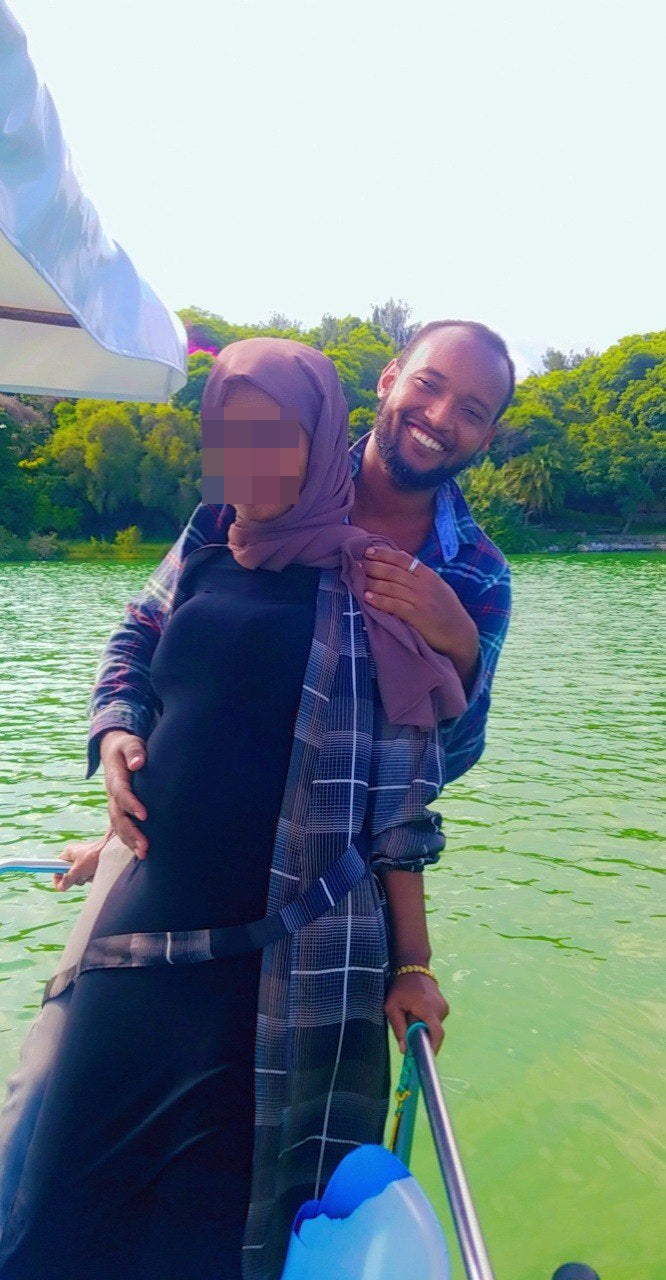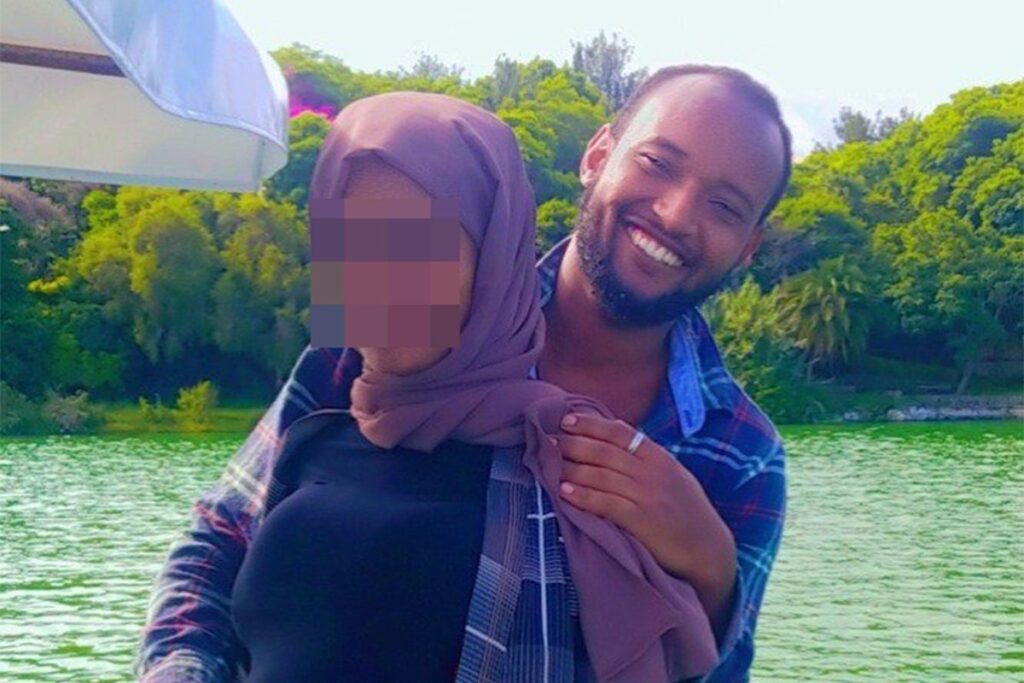When Umer Heyi received news from the Home Office that he had been granted sanctuary in Britain, he was ecstatic.
Caseworkers had agreed that the 28-year-old had a “well-founded fear of persecution” and could not return to his home country of Ethiopia, where he said he had been imprisoned over his support for an opposition party, the Oromo Liberation Front.
The decision meant he had a stable future in the UK, at least for the next five years. But, more importantly for Umer, it also meant the promise of safety for his wife Habiba, 32, and two-year-old son Kena, who he believed would now be allowed to come to Britain under a government scheme to bring families together.
“If I bring them here, I will be able to protect them. If I can save my life, but I can’t protect them, then why should I live?” he said.
Yet, just hours after receiving the good news, Umer’s hope that he would one day reunite with his loved ones was snatched away.
The day he received his grant of refugee status – 4 September – was also the last day that refugees could apply to bring their close family members to the UK, after a dramatic shift in policy by Labour.
Eager to start the process of bringing his wife and son to the UK as soon as possible, Umer had obtained the phone number of a lawyer through an Ethiopian friend and rang it at 3:13pm. But what he didn’t know was that the scheme had closed to new applications just 13 minutes earlier, at 3pm.
-copy.jpeg)
Then-home secretary Yvette Cooper had announced a pause on new applications in parliament three days before. Ms Cooper claimed that people-smuggling gangs were using family reunion rules to promote illegal crossings to the UK, but charities condemned the decision saying it would in fact push people into the hands of smugglers.
The pause on the family reunion scheme is expected to last until Spring 2026, when new requirements for refugees are expected to be announced. In the meantime, those settled in the UK can sponsor immediate family members to come here, but only if they meet the minimum salary threshold of £29,000 per year and if they can pay thousands in application fees.
Umer had arrived to the UK on a small boat in May 2025. He graduated university with a degree in computer science in Ethiopia and speaks fluent English, but has struggled to find work in the sector since getting his refugee status. He is now doing a cyber security course in Norwich so that he can have a suitable UK qualification that will help him get a job.
Tragically, Umer has never been able to meet his two-year-old boy in person. “I was arrested and imprisoned by the government one week before my son was born,” he said.
“I was supporting the opposition party and I had participated in a series of protests. The authorities arrested me and put me in prison, without trial, for one year and four months.
“I was able to escape after my family paid a bribe for my release but I had to immediately leave the country without seeing my wife or son. That was in November 2024 and it took me around six months to get to the UK.”

Umer was able to speak to his wife again for the first time in April this year, when he borrowed a phone while in Italy.
“Since my arrest she has had to move houses multiple times. She was running from place to place, and militias were harassing our family. I want to do anything I can to take them out of that country and, when I got to the UK, it was explained to me that I could bring them here if I applied for asylum,” he said.
“The officer who interviewed me on my first day in the UK explained that I can apply for them. So the day I received my refugee status, I called the lawyer to apply.
“She explained to me that it [the reunion scheme] had stopped and there was nothing she could do for me.”
He added that he was “heartbroken”.
“I haven’t even seen my son in person, all we can do is a video call. If I can’t save him, if I can’t protect him, then what have I got?
“We just want the opportunity to save our lives and not stay separated.”
Umer speaks to his wife and son regularly but for safety reasons has to wait for them to call him. His son Kena likes to play and listen to music while they are on video calls together.
Umer explained that Kena likes it when he sings Oromo music. “He tells me to sing and he will dance. He just keeps telling me to sing again, sing again,” he said.
“Then when he is playing with other little boys, he tells my wife to bring the phone and he tells them ‘this is my father’.
“Every time he tells me to come, ‘why don’t you come?’”, Umer recalled.
Nick Beales, from the refugee charity Ramfel who have supported Umer, said: “Labour’s decision to suspend refugee family reunion is not only cruel but counter-productive.
“Keir Starmer and Shabana Mahmood cannot on the one hand say they want refugees to take safe routes and then on the other remove one of the few safe routes that exists. They cannot insist that refugees immediately establish themselves in their new communities whilst at the same time ensuring their partners and children remain stranded overseas.”
A Home Office spokesperson said: “We have recently moved to suspend the refugee family reunion route, acknowledging the pressures it is putting on local authorities and public services.
“We understand the devastating circumstances of some families, which is why there remain other routes which individuals may be eligible to apply for in order to reunite with family.”


